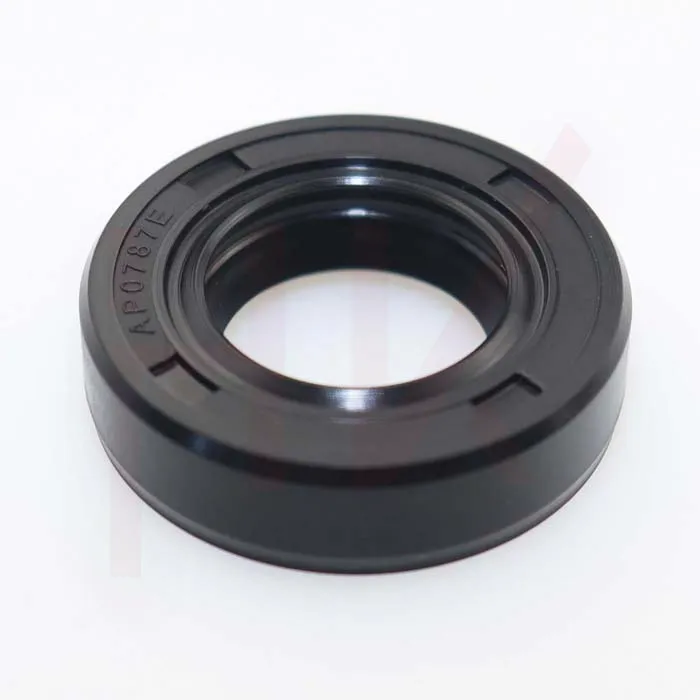डिस . 18, 2024 07:11 Back to list
Rotary Shaft Oil Seal Solutions for Enhanced Performance and Longevity
Understanding Oil Seals for Rotating Shafts
Oil seals, also known as rotary seals or shaft seals, play a critical role in machinery and automotive applications. Their primary function is to prevent the leakage of lubricants and to keep contaminants out from the machined surfaces of rotating shafts. This is especially important in devices that require high performance and longevity, where the integrity of the lubricant is essential for proper operation.
What are Oil Seals?
Oil seals are mechanical devices typically made from rubber or synthetic materials, designed to fit snugly around a rotating shaft. Their structure usually consists of a sealing lip that contacts the surface of the shaft, maintaining a barrier against fluids such as oil and grease. The design of oil seals varies widely, depending on the specific application and the environment in which they operate. Common types include single lip, double lip, and even customized seals for specialized applications.
Importance of Oil Seals
1. Leak Prevention Oil seals are crucial for preventing the leakage of lubricants, which helps maintain the necessary levels of lubrication in machinery. A leak can lead to insufficient lubrication, resulting in increased friction and wear, which significantly shortens the lifespan of mechanical components.
2. Contamination Control In addition to preventing leakage, oil seals also act as a barrier to contaminants like dirt, dust, and water. If these foreign particles enter the lubrication system, they can cause severe damage, leading to premature failure of the equipment.
3. Cost Efficiency Using high-quality oil seals can lead to reduced maintenance costs over time. By minimizing leaks and guarding against contaminants, these seals enhance equipment efficiency and reliability, lowering the frequency of repairs and replacements.
4. Versatility Oil seals are used in a variety of applications across different industries, including automotive, aerospace, manufacturing, and marine sectors. From engines and gearboxes to pumps and compressors, oil seals ensure that rotating shafts operate smoothly and efficiently.
Design Considerations
oil seal for rotating shaft

When selecting an oil seal for a particular application, several factors must be considered
- Operating Temperature Different materials have varying degrees of thermal stability. It is essential to choose a seal that can withstand the operating temperature of the environment to prevent degradation.
- Shaft Speed The speed at which the shaft rotates can influence the performance of the oil seal. High-speed applications may require seals specifically designed for such conditions, which can handle centrifugal forces without compromising sealing capabilities.
- Chemical Compatibility The seal material must be compatible with the type of lubricant being used, as well as with any potential contaminants. For example, certain oils or chemicals could degrade rubber, necessitating the use of specialized synthetic materials.
- Installation Space The available installation space can also dictate the type of oil seal used. Some devices have limited space that may restrict the size of the seals, leading to the need for customized or low-profile options.
Maintenance and Replacement
While oil seals are designed for durability, they are not immune to wear and tear. Regular checks for signs of leakage, wear on the sealing lips, and signs of contamination should be part of routine maintenance. When a seal is found to be compromised, timely replacement is critical to avoid further damage to the machinery.
Conclusion
Oil seals for rotating shafts are essential components in maintaining the efficiency and longevity of machinery. They play a dual role in preventing lubricant leakage and keeping contaminants at bay, thereby protecting intricate mechanical systems from damage. By understanding the importance of oil seals and considering factors such as design, materials, and operating conditions, industries can ensure optimal performance and reduce maintenance costs. Investing in high-quality oil seals is not merely a choice; it is a necessity for anyone looking to enhance the reliability of their mechanical systems.
-
The Trans-formative Journey of Wheel Hub Oil Seals
NewsJun.06,2025
-
Graphene-Enhanced Oil Seals: Revolutionizing High-Pressure Oil Sealing
NewsJun.06,2025
-
Future of Hydraulic Sealing: Advanced Intelligent TCN Oil Seals
NewsJun.06,2025
-
Don’t Let a Broken TCV Oil Seal Ruin Your Day
NewsJun.06,2025
-
Bio-Inspired Dust Seals for Better Sealing Performance
NewsJun.06,2025
-
Biodegradable and Sustainable Hydraulic Seal Materials
NewsJun.06,2025
-
Top Oil Seal Solutions for Your Industrial Needs
NewsMay.22,2025
Products categories
















